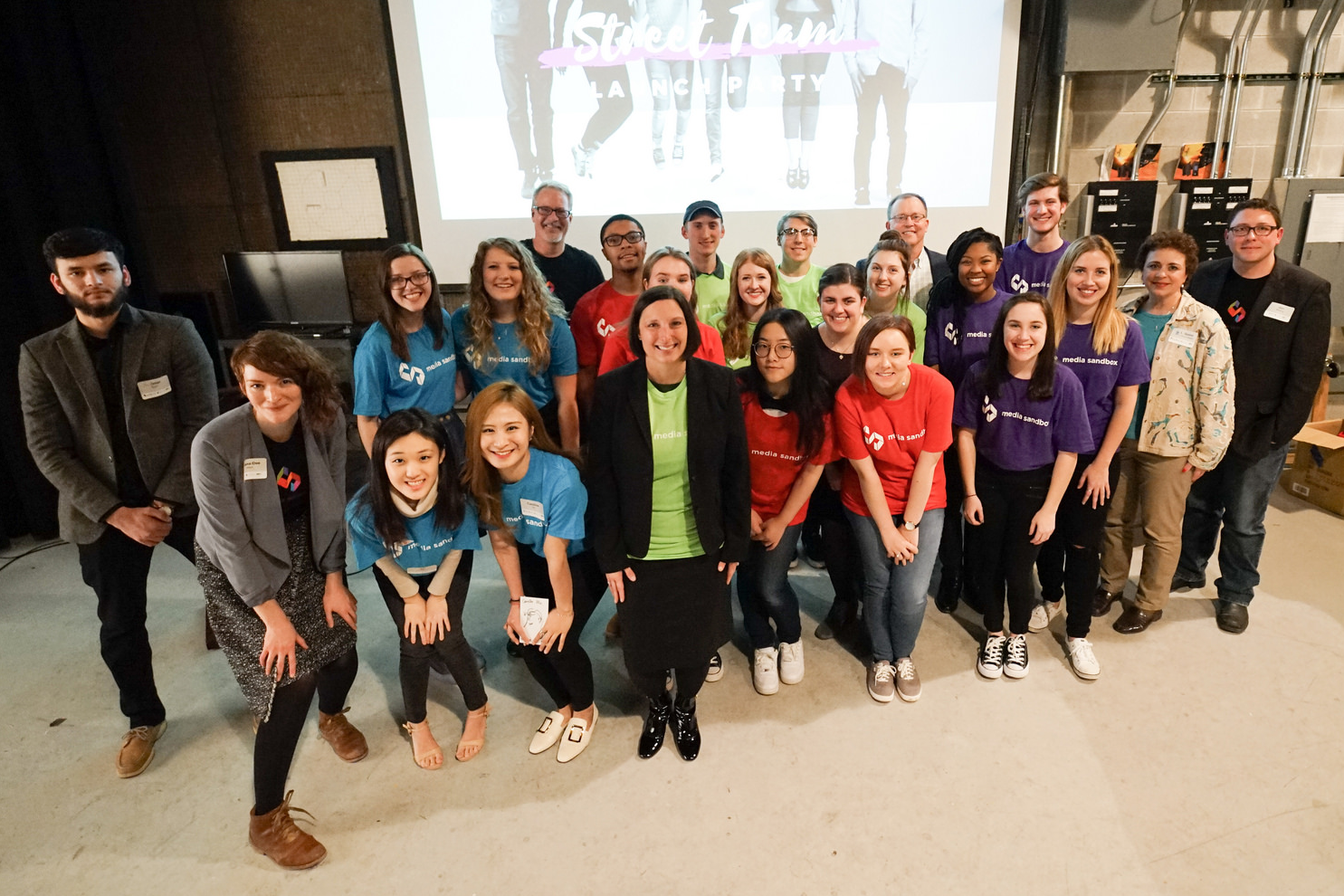The Media Sandbox Street Teams have big plans to help nonprofits this semester. As an interdisciplinary group of students from both the College of ComArtSci as well as from other colleges, Street Teams assist nonprofits with a variety of media projects.
This year, thanks to a generous $250,000 donation from MSUFCU, the teams will be able to use their creative skills to help local nonprofits for the next five years.
“The MSUFCU funding allows Media Sandbox Street Teams to become a larger and more organized program in our college for service learning,” said Karl Gude, Media Sandbox director. “This funding also allows for growing the program over the period of the grant.”
.jpg)
MSUFCU President April Clobes presents Media Sandbox Faculty Advisor Jon Whiting with a $250,000 donation from the credit union.
The Nonprofit Partnership
The donation from MSUFCU has helped provide the resources to sponsor four Media Sandbox Street Teams, each named after a color in the Media Sandbox logo: Lime, Cyan, Red and Violet. Composed of three to six students per team, each team member has a specific role, ranging from project manager to videographer to graphic designer. Together, they work to help their designated nonprofit come up with creative solutions for their communication challenges.
“We have an excellent group of students; they’re passionate, they’re caring,” said Jeana-Dee Allen, project manager of Media Sandbox. “They have so many demands on their schedules, but they show up every week and give their time and talents to help these nonprofits.”
Media Sandbox leaders Karl Gude, Jon Whiting and Jeana-Dee reached out to local nonprofits to see how Street Teams could help. After careful consideration, four nonprofits were chosen and assigned to each team based on the nonprofit’s needs and each Street Team’s unique set of creative and problem-solving skills.
The nonprofits chosen include ITEC for its extraordinary programs with at-risk students and families in Michigan to build confidence in STEM coursework, the Michigan Disability Rights Coalition, known for providing assistive technology and fostering communication between disability groups, The Firecracker Foundation, a nonprofit that provides holistic healing services to child survivors of sexual trauma under the age of 18 and their families in the tri-county area of Mid-Michigan and, lastly, the Clinton-Gratiot Habitat for Humanity, known for their local work building wheelchair ramps and helping low-income individuals and families on their path towards homeownership. Each nonprofit was partnered with Team Lime, Red, Cyan and Violet, respectfully.
Looking Towards the Future
With the $250,000 donation from MSUFCU, the Media Sandbox Street Teams have the resources needed to help these nonprofits bring their visions to life. The support from the community and MSU faculty has been overwhelming.
“I loved their enthusiasm in working with the nonprofits to make sure that they are able to get their messages out in creative and engaging ways,” said Julia Sullivan, MSUFCU Internal Communications Specialist.
There is a lot of excitement to see the end projects from the Media Sandbox Street Teams. Although many of the teams are in the later planning stages, each is eager to get the ball rolling on creating media for their ambitious projects.
“I am truly in awe of the students voluntarily donating their time and talents to help local organizations,” said Adrienne Hall, MSUFCU Communications Specialist. “It’s great to see students with various backgrounds and skill sets come together to help give back to our community.”
A closing gala-style event on April 20 will showcase the culmination of work students have done for their nonprofit partners.
By Sierra Richards
